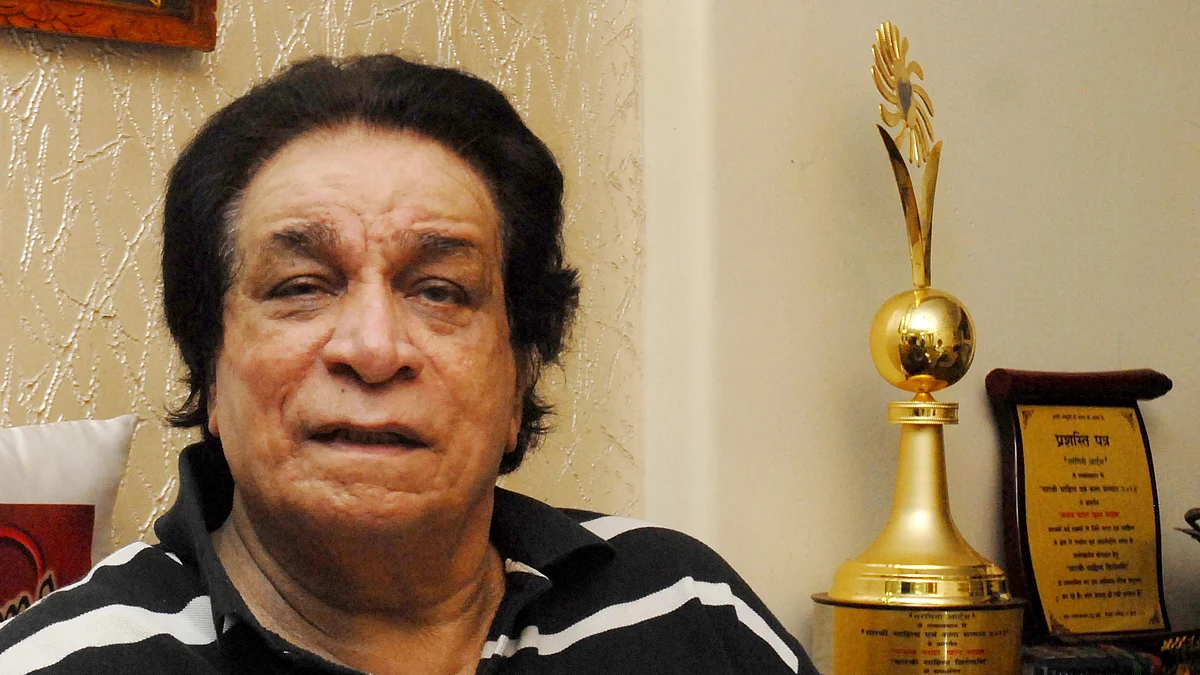Obituary: Kader Khan, the Maths teacher who conquered Bollywood
Actor-director-scriptwriter, and a teacher in real life, Kader Khan passed away in Canada at 81 after fighting Progressive Supranuclear Palsy, a degenerative disease, for many years

Kader Khan, who passed away in Canada on the last day of 2018 at the age of 81, many believe, contributed in no small measure to the success of Amitabh Bachchan as an actor and in moulding his dialogues delivered in the rich baritone voice that seduced millions of viewers. Kader Khan, actor-director-writer, was himself endowed with a rich voice.
He passed away after fighting Progressive Supranuclear Palsy, a degenerative disease, for many years. This is how the megastar remembered him on Tuesday:
Khan, however, in several media interviews had harshly criticised Bachchan before he stopped making public appearances. At one point, Khan himself wanted to direct Bachchan in his proposed movie “Jaahil”’. However, his dream project got shelved after Bachchan met with a near-fatal accident on the sets of ‘Coolie’ which landed him in the hospital. Thereafter, Khan got busy with other movies and Bachchan joined politics.
“Once Bachchan had advised me against joining politics. But to my displeasure he himself joined politics and became an MP. When he returned he was not the same person. Politics never lets you remain the same person,” Khan had recalled in an interview.
Interestingly, besides Amitabh Bachchan, Khan was the only one to have collaborated with the rival camps of Prakash Mehra and Manmohan Desai. With Desai he worked in Dharam Veer, Ganga Jamuna Saraswati, Coolie, Desh Premee, Suhaag, Parvarish and Amar Akbar Anthony. His most prominent films with Prakash Mehra include Jwalamukhi, Sharaabi, Lawaaris, Muqaddar Ka Sikandar.
He wrote screenplays for hundreds of films including several starring Amitabh Bachchan, such as Mr. Natwarlal, Khoon Pasina, Do Aur Do Paanch, Satte Pe Satta, Inquilab, Giraftaar, Hum and Agneepath and Naseeb.
On December 28, Bachchan had remembered his association with Khan, in a series of tweets. He wrote, “KADER KHAN .. actor-writer of immense talent .. lies ill in Hospital .. PRAYERS and DUAS for his well being and recovery.. saw him perform on stage, welcomed him and his prolific writing for my films… great company, a Libran .. and, many may not know, taught Mathematics!”
As a film writer, he wrote resounding philosophical statements—which were rooted in both realism and romanticism at the same time—and with the same ease he churned out humorous dialogues that had fresh local flavour.
It was arguably Khan who contributed to inimitable image of a young Amitabh Bachchan babbling philosophy and poetry in a drunken state on screen.
Sample the following iconic dialogues:
- Munshi Ji, apni zindagi ka tambu, teen bambuon pe kharha hai ... shayari, sharaab aur aap ... agar aik bhi bamboo nikal gaya to hamara tambu ukharh jayega (Sharabi, 1984)
- Vijay Deenanath Chauhan. Poora naam. Baap ka naam Deenanath Chauhan. Maa ka naam Suhasini Chauhan. Gaanv Mandva. Umr 36 saal, nau mahina, aath din, yeh solva ghanta chal raha hai... Haain? (Agneepath, 1990)
Similarly, he contributed immensely to the films directed by David Dhawan starring Govinda. “He (Khan) has taught me a lot and treated me like his child,” Dhawan was quoted as saying. Both of them had collaborated in at least 10 movies.
Interestingly, he was not just confined to Bollywood. He acted in many films made by South Indian directors like K Raghavendra Rao, K Bapaiah and Narayana Rao Dasari. And many of the films written by him were adopted by the regional cinema.
Born in Kabul (Afghanistan) in Kakar tribe of the Pashtuns, his family migrated to Bombay when he was hardly one year old. He spent his childhood in abject poverty. During those days, his mother had advised him to take education seriously if he wanted to eliminate his poverty. He not only took his studies seriously but also developed a keen interest in literature.
He graduated from Ismail Yusuf College affiliated to Bombay University and went on to teach at MH Saboo Siddik College of Engineering, Byculla before joining the film industry.
While Dilip Kumar had encouraged him to join film industry, it was Rajesh Khanna who gave him the break as dialogue writer in his film Roti, 1974. After he became successful as a screenplay writer, he made foray into acting and played some of the best negative roles in films. But he took to comic roles and stopped playing the bad guy on silver screen after his son complained that his schoolmates teased him over his villainous roles.
In his passing away, one is reminded of a dialogue from Muqaddar Ka Sikandar (1978) which was delivered by Rekha: “Insaan ki mitti mein dhong mila hua hai … mitti ko dhong ke pani se he goonthkar, maalik ne insaan banaya hai.”
Those who knew Kader Khan personally, would vouch that he was certainly not the one who lived a life of pretensions. And he paid for it as well !
Follow us on: Facebook, Twitter, Google News, Instagram
Join our official telegram channel (@nationalherald) and stay updated with the latest headlines